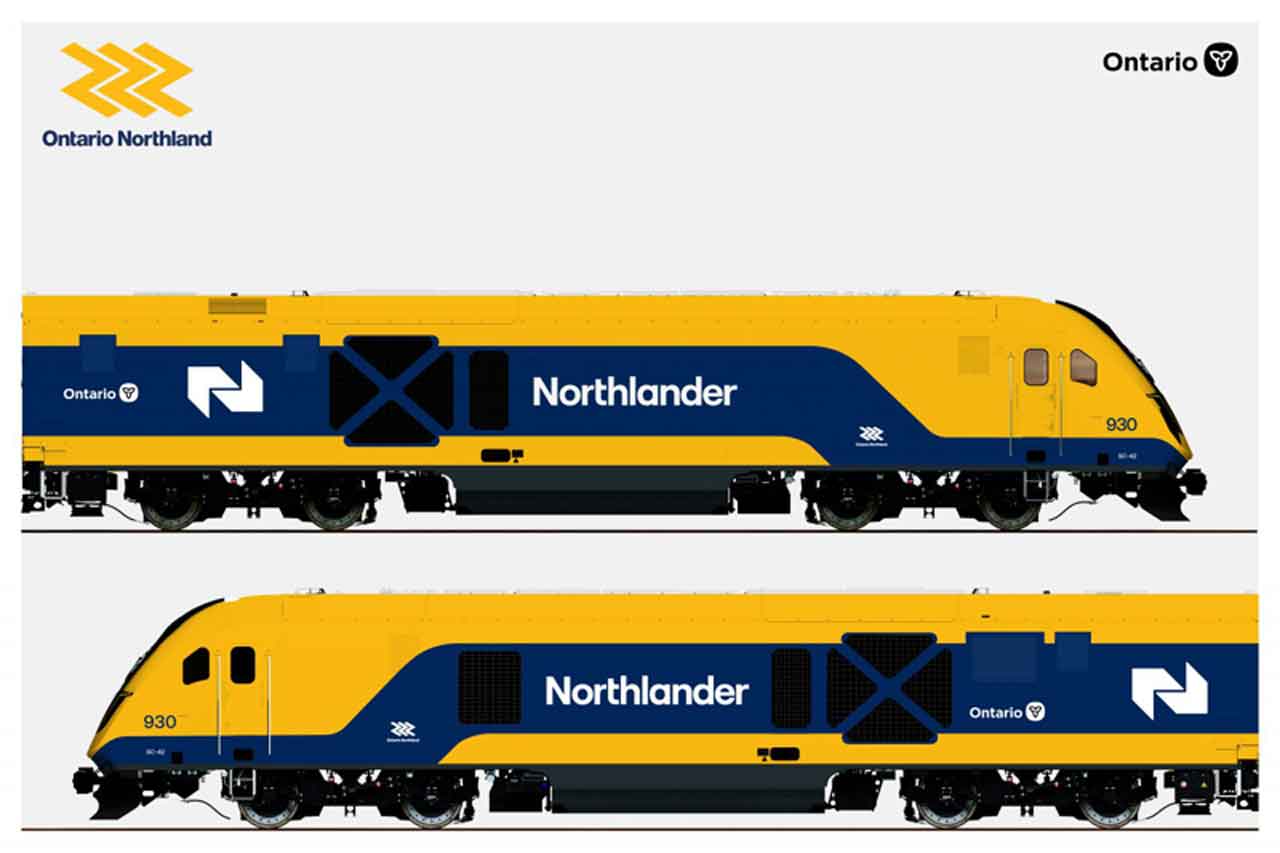C_Johnson_1995
New Member
Could you imagine if they suggested extending it even further to somewhere like Timmins? These fantasy maps really are something.Could be worse, some think that a Toronto to North Bay train would be a good idea!
Could you imagine if they suggested extending it even further to somewhere like Timmins? These fantasy maps really are something.Could be worse, some think that a Toronto to North Bay train would be a good idea!
What would even be more fantastical would be a train to the James Bay coast! Even more the idea of it going to a place with only 4000 people. What is more crazy, would be if it ran more often than any of Via's non Corridor service.Could you imagine if they suggested extending it even further to somewhere like Timmins? These fantasy maps really are something.
BCRs are fairly comprehensive and take a wide range of anticipated impacts into account. Even if not perfect, they provide a reasonable benchmark to compare this investment against other options. A negative BCR weighed against the backlog of projects elsewhere that have a positive BCR suggest this project probably shouldn't get a sniff until near the end of this century. Road improvements and enhanced bus services would likely have a greater general utility and even if they have a negative BCR, they would likely be much closer to 1 and would meet the region's needs more effectively. With the amount being spent on the Northlander, it would probably be feasible to have a dozen busses per day between the North and Toronto. I think that would be much more beneficial.BCR is not a perfect measurement, there are many things it does not / cannot take into account.
Also, not everything needs to have a positive BCR. There are many things that governments do that have "negative BCR" but they do for political, social or equity reasons.
Improvements to northern highways (e.g. 4 laning) may also have negative BCR given the small amount of traffic that would use a road.
You are just being unserious. The train only exists because there is no other option. You can't justify the existence of an inherently wasteful and opulent project that is doomed for failure like the Northlander which is paralleled by roads for its entire route with a remote service like this.What would even be more fantastical would be a train to the James Bay coast! Even more the idea of it going to a place with only 4000 people. What is more crazy, would be if it ran more often than any of Via's non Corridor service.
The Polar Bear Express Passenger Train - Ontario Northland
www.ontarionorthland.ca
BCRs are fairly comprehensive and take a wide range of anticipated impacts into account. Even if not perfect, they provide a reasonable benchmark to compare this investment against other options. A negative BCR weighed against the backlog of projects elsewhere that have a positive BCR suggest this project probably shouldn't get a sniff until near the end of this century. Road improvements and enhanced bus services would likely have a greater general utility and even if they have a negative BCR, they would likely be much closer to 1 and would meet the region's needs more effectively. With the amount being spent on the Northlander, it would probably be feasible to have a dozen busses per day between the North and Toronto. I think that would be much more beneficial.
I would also like to reiterate the fact that since this service will be subsidised by Ontario Northland's freight revenues, its failure will put the rest of the organisation at risk. Should freight traffic fall on hard times like with the upcoming North American trade war, the whole organisation becomes at risk of privatization or wholesale track abandonment. Every bit of profit from freight should be reinvested in freight to build resiliency. I wouldn't be surprised if this move was also an underhanded move to undermine ONTC in the long term, beyond being just a cynical move to buy votes of course.
BCRs are fairly comprehensive and take a wide range of anticipated impacts into account. Even if not perfect, they provide a reasonable benchmark to compare this investment against other options. A negative BCR weighed against the backlog of projects elsewhere that have a positive BCR suggest this project probably shouldn't get a sniff until near the end of this century. Road improvements and enhanced bus services would likely have a greater general utility and even if they have a negative BCR, they would likely be much closer to 1 and would meet the region's needs more effectively. With the amount being spent on the Northlander, it would probably be feasible to have a dozen busses per day between the North and Toronto. I think that would be much more beneficial.
You are just being unserious. The train only exists because there is no other option. You can't justify the existence of an inherently wasteful and opulent project that is doomed for failure like the Northlander which is paralleled by roads for its entire route with a remote service like this.
GO transit and the TTC are subsidized too. When are we going to shut them down?I would also like to reiterate the fact that since this service will be subsidised by Ontario Northland's freight revenues, its failure will put the rest of the organisation at risk. Should freight traffic fall on hard times like with the upcoming North American trade war, the whole organisation becomes at risk of privatization or wholesale track abandonment. Every bit of profit from freight should be reinvested in freight to build resiliency. I wouldn't be surprised if this move was also an underhanded move to undermine ONTC in the long term, beyond being just a cynical move to buy votes of course.
I suspect that Northlander operations, much like every other form of public transportation, will be subsidized by the government. It's actually discussed in the Business Case. I doubt TTC operating costs are subsidized by garbage pick-up or snow removal.I would also like to reiterate the fact that since this service will be subsidised by Ontario Northland's freight revenues, its failure will put the rest of the organisation at risk. Should freight traffic fall on hard times like with the upcoming North American trade war, the whole organisation becomes at risk of privatization or wholesale track abandonment. Every bit of profit from freight should be reinvested in freight to build resiliency. I wouldn't be surprised if this move was also an underhanded move to undermine ONTC in the long term, beyond being just a cynical move to buy votes of course.
the winning design actually looks pretty good!
You deal with it on a case by case basis as is done now. It's not as if roads in the north are blocked 50% of the time. It doesn't constitute a crisis.And what happens when the highway closes for over 16 hours? All the math done in a southern ON office building with easy access to multiple modes of transportation is what is the problem with planning out anything in Northern ON. The fact that the head offices of ONR are and have always been in North Bay is a great thing as those people live the life we all live.
Subsidies are fine if used correctly, but here they will likely bring down a politically vulnerable service that has been on the brink of being wiped out before.GO transit and the TTC are subsidized too. When are we going to shut them down?
The 401 is subsidized. When will it be shut down?
That's not why I have a problem with the subsidies. I don't actually think you read my post so go back and look through it again. But in case it was too hard to understand for whatever reason, what I was trying to say is that forcing Ontario Northland to CROSS SUBSIDISE THE SERVICE WITH THEIR FREIGHT REVENUES will put them at considerable risk by not allowing them to reinvest and create resiliency in their freight business.Arguing subsidies is pointless. Instead, why not ague about the actual usage of it? For example, you might try and ague the train will be empty for the whole way. You might try to argue that the schedule won't work for people. (People of the north actually want that schedule.) If you are going to argue subsidy, then it should be a blanket argument, not just on things you may never use.
It will not be subsidized by the government.I suspect that Northlander operations, much like every other form of public transportation, will be subsidized by the government. It's actually discussed in the Business Case. I doubt TTC operating costs are subsidized by garbage pick-up or snow removal.

Not what their own business case says.It will not be subsidized by the government.
You deal with it on a case by case basis as is done now. It's not as if roads in the north are blocked 50% of the time. It doesn't constitute a crisis.
Subsidies are fine if used correctly, but here they will likely bring down a politically vulnerable service that has been on the brink of being wiped out before.
That's not why I have a problem with the subsidies. I don't actually think you read my post so go back and look through it again. But in case it was too hard to understand for whatever reason, what I was trying to say is that forcing Ontario Northland to CROSS SUBSIDISE THE SERVICE WITH THEIR FREIGHT REVENUES will put them at considerable risk by not allowing them to reinvest and create resiliency in their freight business.
Also, the train will be empty as you point out.
It will not be subsidized by the government.

Northlander passenger rail service will be funded by freight contracts
More freight in the works for northern Ontario, Pirie sayswww.timminspress.com

Merry Christmas.Our very own little Nederlandse Spoorwegen!
Kind of reminiscent of the TEE.View attachment 618726
full trainset... i have to say this looks BETTER than the via ventures except for Lumi. the paint scheme is symmetrical unlike the disconnected via loco livery from the rest of the train




